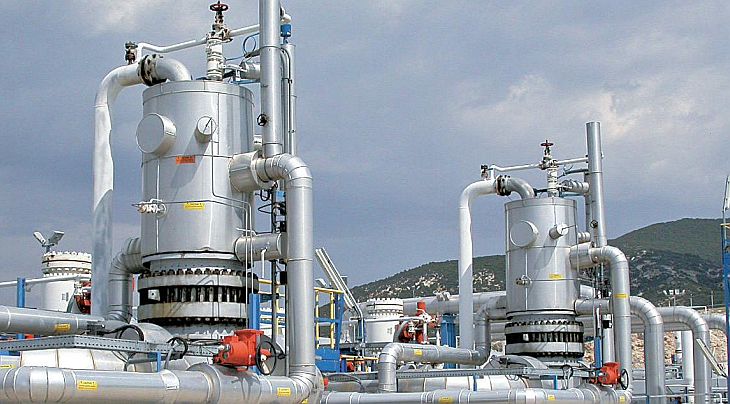Romania’s onshore resources are gradually depleting and, as in any other field of energy, we have almost no policy that is coherent, consistent and on which there is consensus among almost all politicians and central and local authorities, says the Report “Romania at a crossroads. Are we becoming dependent on gas or a regional actor?,” recently published by the 2Celsius Association.
According to the cited source, the European Union (EU) consumes 155 billion cubic meters (bcm) of Russian natural gas annually, which should be replaced this year itself.
“With logistical efforts and small network reinforcements, 70 bcm can be replaced by liquefied natural gas (LNG) imports, 60 bcm through energy efficiency and substitution with other fuels, and 15 bcm could be additionally imported from Norway or Algeria. The difference of 10 bcm can be covered, in the short term, from storage facilities. 40% of gas consumed in the EU is from Russia, and it accounts for 30% of its exports. This means that Russia is more dependent than Europe on such a transaction. Gas storage will become impossible, and stopping production is extremely expensive for Gazprom. Stopping Russian gas imports is the best option for the EU, in the medium and long term, but not without costs in the short term,” the report states.
As for the situation in Romania, the document reveals that the country’s onshore fields are gradually depleting and, apart from Black Sea Oil and Gas, which opened production in June, none of the other new fields are about to actually begin production. Also, the start of the new projects could be possible at the earliest in 2023, which means that the estimated 30-year operation is approaching the year 2050, when the EU aims to reach “Net Zero Emissions”.
“The reason why we have had a hard time with increasing gas production in Romania, as in any other energy field, is that we have almost no energy policy that is coherent, consistent and for which there is consensus among almost all politicians and between central and local authorities. We are not connected at all to European discussions and issues, despite our ambitions as a regional player. For example, although we are the “second largest gas producer in the EU”, we have had no position in the European strategy regarding methane emissions or last year’s proposed Regulation, and we are not part of any of the dozens of international organizations that deal with the subject of gas, neither with state representatives, nor with private companies. Romania is about the only place in the EU where gas production can increase in the next few years,” claims energy expert Otilia Nuțu, author of the specialized report.
All this time, in addition to the huge investments required for new exploitations, the Government of Romania is allocating over 21.4 million lei, through various programs, for the expansion of gas networks, under conditions in which it is not clear the direction that Romania will take in terms of regarding the exploitation of gas, and the bills continue to increase, it is noted in the analysis.
“High prices discourage household consumption and there is a risk that we will build gas networks and not use them. Expanding the network means that the street infrastructure will be built, then every household would have to install the heating system inside the house and then pay the bill. We do not expect prices to decrease in the coming years, as on the platform of the Romanian Commodity Exchange prices remain high for contracts with delivery in 2023, and the European Commission warned that energy prices would remain high until at least in 2024-2025. At the European level, gas may be accepted as a ‘transition fuel’, but the situation will certainly be temporary and we need a concrete plan to replace it, starting in 2050. At the same time, through REPower EU, we could benefit from substantial funds for investments in renewable energies, which would put Romania on the trajectory to meet the climate targets,” environmental activists say.
